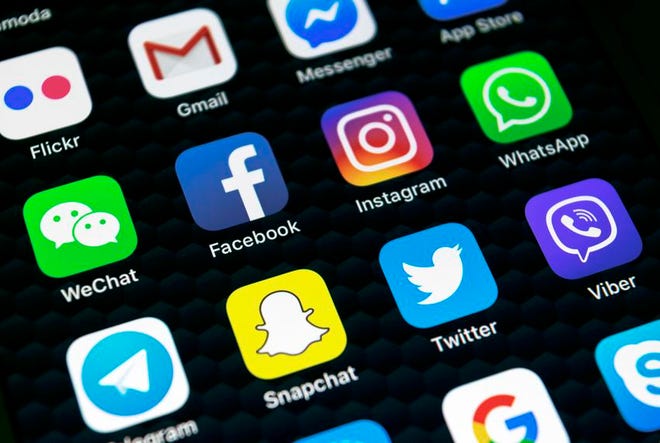We are living in an era of Big Tech dominance. On top of the mountain are Google (Alphabet), Apple, Facebook (Meta), Amazon and Microsoft. We rely on these companies to live, work, study and secure essential services. Over time, Big Tech has built a frighteningly detailed picture of billions of individuals. This translates to market power and enables their platforms to ensure that users stay connected.
The top-of-the-mountain tech titans dominate e-commerce, online advertising, consumer electronics, cloud computing, computer software, media streaming, artificial intelligence and social networking. The companies remain vigilant in order to innovate, transform and remain on top. Otherwise, upstarts will enjoy the exponential growth that heretofore led to their hegemony.
Aside from Aramco, they are the world’s most valuable companies enjoying market capitalizations above $1 trillion. The Big Five make up 46% of the Nasdaq 100.
NASDAQ 100 (Largest by percentage as of 1/31/2021)
- Apple: 12%
- Microsoft: 11.3%
- Amazon: 11.2%
- Facebook: 4.2%
- Alphabet: 7.6%
Because of their dominance, the Department of Justice, the Federal Trade Commission and the European Commission have raised questions not only about the economic power of the Big Five, but also their invasion of our privacy.
The Big Five have acquired numerous companies. Their mantra is “grow or perish.” For example, Google acquired YouTube and Fitbit, Microsoft purchased LinkedIn and wants to buy Activision Blizzard for almost $70 billion, and Facebook picked up Instagram.
According to The Economist, to remain preeminent, the Big Five spent $149 billion on research and development (R&D). This expenditure far exceeds the R&D budget of the Pentagon. The Big Five have specific goals to achieve. For example, Apple is looking for a piece of hardware to become the new iPhone. Amazon is trying to improve the efficiency of its warehouses and delivery systems. Facebook is looking for a new social networking paradigm. Between 5-20% of the tech giants’ massive R&D spending goes toward “frontier technologies” — the metaverse, autonomous vehicles, health care, space, robotics, fintech, crypto and quantum computing.
The following are brief descriptions of the Big Five tech companies:
Amazon is the dominant market leader in e-commerce with 50% of all online sales going through its platform, cloud computing with nearly 32% market share, and 75% market share of live streaming.
Apple sells iPhone, iPad, Apple Watch, Apple TV and other consumer electronics. It shares the lead with Google in the field of mobile operating systems.
Google (Alphabet) is a leader in online search, online video sharing (YouTube), email services (Gmail), web browsing (Google Chrome) and online mapping (Google Maps).
Facebook (Meta) dominates social networking. Facebook has rebranded itself as Meta. Participants in the metaverse own virtual goods such as clothing and property, attend concerts and restaurants, and are trading virtual assets.
Microsoft dominates desktop operating systems (Microsoft Windows). It is the second biggest company in cloud computing (Microsoft Azure) after Amazon. Microsoft is one of the biggest players in the video game industry (Xbox).
Storm clouds are undermining the bright prospects of the Big Five tech companies. In 2020, a report by a congressional antitrust subcommittee argued that the dominance of big tech had “materially weakened innovation.” The report stated that “these giants accrue big benefits from the network effects — having the most users is the best way to add new users.” Furthermore, the Big Five add to their moats by preemptively acquiring potential rivals.
In 2021, President Biden signed an executive order targeting their anti-competitive practices. Biden said, “Let me be clear: capitalism without competition is not capitalism. It is exploitation.” Biden has called for increased scrutiny of mergers by the leading tech companies, “with particular attention to the acquisition of nascent competitors, serial mergers, the accumulation of data, competition by ‘free’ products, and the effect on user privacy.”
Originally published in the Sarasota Herald-Tribune




